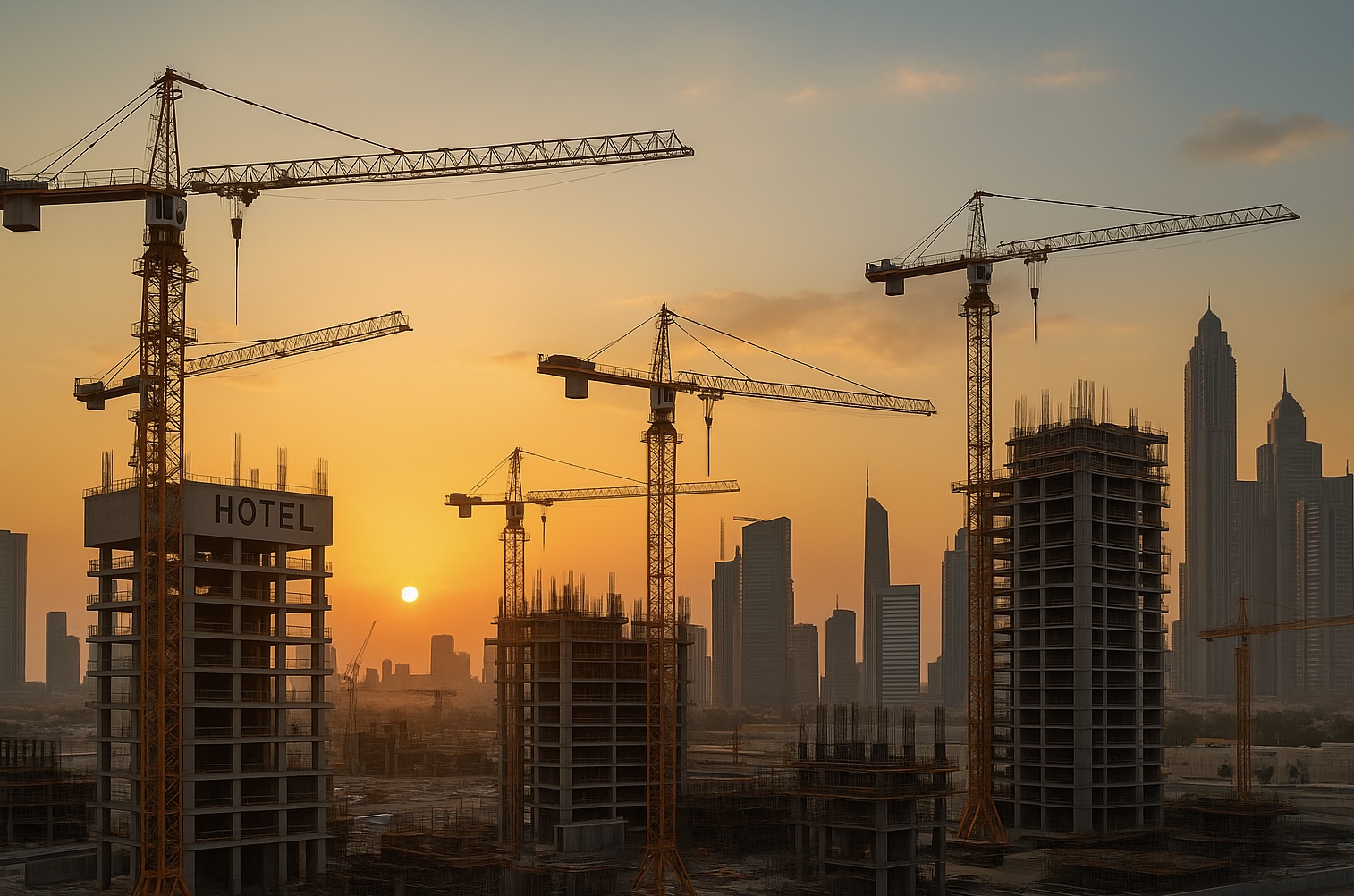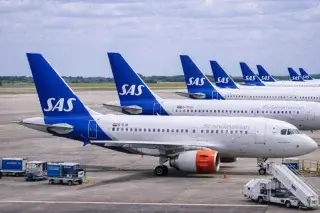read also
Tourism & hospitality / News / Reviews / Analytics / United Arab Emirates / Tourism UAE / Egypt / Tourism Egypt 21.11.2025
Middle East Hotel Construction Pipeline Hits Record High: 659 Projects and 163,816 Rooms Under Development

The Middle East’s hotel sector is entering a new era of large-scale expansion. According to the Q3 2025 Middle East Construction Pipeline Trend Report by Lodging Econometrics (LE), the region’s hotel construction pipeline has reached an all-time record of 659 projects totaling 163,816 rooms — an 8% increase in projects and a 9% rise in rooms year-on-year. This sustained growth underscores the Middle East’s position as one of the most dynamic global hubs for hospitality investment and development.
Record Growth and Sector Momentum
During the third quarter of 2025 alone, 32 new projects were announced across the region, adding 7,184 rooms, marking a 7% year-over-year increase.
Currently, 332 projects (86,958 rooms) are under active construction — up 12% by projects and 9% by rooms compared to last year. Another 161 projects (48,251 rooms) are scheduled to break ground within the next 12 months, while 166 projects (28,607 rooms) remain in the early planning phase.
This consistent expansion signals robust developer confidence and sustained investor appetite for the Middle East’s hospitality sector, fueled by ambitious tourism visions in Saudi Arabia, the UAE, and Egypt.
Luxury and Upscale Segments Drive the Pipeline
The luxury hotel segment continues to lead the pipeline, reaching a record 199 projects (44,059 rooms) — up 10% in projects and 6% in rooms year-over-year. The upscale category follows closely with 166 projects (47,974 rooms), rising 7% and 13% respectively.
Together, these two segments represent 55% of all active hotel projects in the region, accounting for 365 projects (92,033 rooms) — a 17% increase in projects and 19% in room count compared to 2024.
Meanwhile, the upper-upscale segment has also reached a historic peak with 153 projects (38,478 rooms), up 9% by projects and 10% by rooms.
Another notable milestone comes from renovations and brand conversions, which hit an all-time high of 79 projects (20,258 rooms) — up 46% by projects and an impressive 67% by rooms year-on-year.
Saudi Arabia, Egypt, and the UAE Lead Regional Expansion
The report highlights Saudi Arabia as the clear regional leader, with a record 349 projects totaling 94,287 rooms, marking a 10% increase in projects and an 18% rise in rooms.
Egypt ranks second, reaching an all-time high of 131 projects (28,657 rooms), up 20% and 9% respectively, followed by the United Arab Emirates with 103 projects (26,061 rooms) — a 20% rise in projects and 10% in rooms.
These three countries together account for 88% of the region’s total pipeline, or 583 projects and 149,005 rooms, underscoring their central role in driving Middle Eastern hospitality growth.
City Leaders: Riyadh, Jeddah, and Dubai Surge Ahead
By city, Riyadh leads the Middle East’s hotel construction activity with 90 projects (18,403 rooms).
Jeddah follows with 59 projects (13,341 rooms), marking a new record.
Dubai, a global hospitality powerhouse, has 56 projects (13,902 rooms), up 22% by project count and 7% by rooms year-over-year.
Cairo continues to strengthen its development pipeline with 50 projects (10,955 rooms) — a 25% and 23% rise respectively — while Makkah shows the fastest growth rate, with 28 projects (18,173 rooms), up 40% by projects and 32% by rooms.
Openings and Forecasts: 2025–2027 Outlook
By the end of Q3 2025, 20 new hotels (4,822 rooms) had opened across the Middle East. Lodging Econometrics forecasts an additional 45 openings (9,531 rooms) by year-end, bringing the 2025 total to 65 hotels (14,353 rooms).
Looking ahead, LE projects 96 new hotels (20,169 rooms) to open in 2026, followed by 91 hotels (22,792 rooms) in 2027 — reflecting the region’s ongoing expansion cycle and sustained construction pipeline momentum.
Industry Implications and Expert Analysis
The record-breaking data confirm that Middle Eastern markets — particularly Saudi Arabia, Egypt, and the UAE — are solidifying their positions as global tourism and investment front-runners.
The combination of government-backed megaprojects, strategic diversification beyond oil, and the upcoming Expo 2030 in Riyadh continues to attract foreign developers and investors.
Experts at International Investment note:
“The Middle East is now setting the global pace in hotel development. Unlike past cycles driven by speculative expansion, today’s growth is structured, backed by long-term national tourism strategies, and supported by major infrastructure investments. However, challenges remain — including workforce development, sustainability targets, and balancing luxury supply with evolving traveler expectations.”
According to analysts, the next phase of growth will focus on eco-luxury, lifestyle brands, and integrated mixed-use projects, aligning with international ESG standards and catering to new generations of travelers seeking authenticity and sustainability alongside comfort.
Подсказки: Middle East, hotels, hospitality, tourism, real estate, Saudi Arabia, Egypt, UAE, construction, investment, Lodging Econometrics, International Investment








